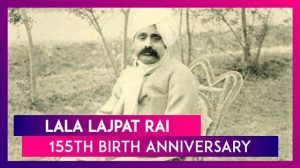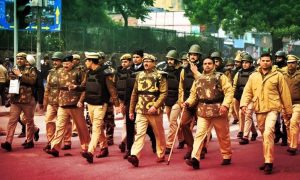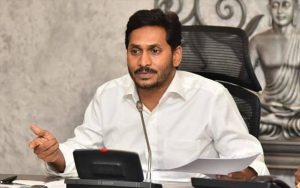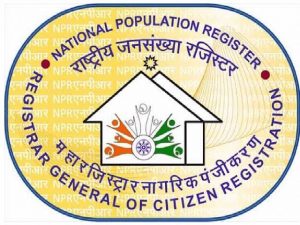Table of Contents
Daily Current Affairs for Government Exams:
Today Current Affairs: 28th January 2020 for UPSC IAS exams, State PSC exams, SSC CGL, State SSC, RRB, Railways, Banking Exam & IBPS, etc.
Contents:
- Yellow weather warning
- Lala Lajpat Rai’s 155th birth anniversary
- National Security Act (NSA), 1980
- The Andhra Pradesh (AP) assembly has passed a resolution to abolish the state’s Legislative Council.;
- National Population Register
- Britain releases new 50 pence coin marking BREXIT
- INS Kavaratti
- Other important current affairs
1. Yellow weather warning:

Recently, the Indian Meteorological Department (IMD) has issued a yellow weather warning for heavy rain and snowfall in Himachal Pradesh.
- Yellow weather warning indicates severely bad weather spanning across several days.
Colour- Coded Weather Warning:
- It is issued by the IMD whose objective is to alert people ahead of severe or hazardous weather which has the potential to cause damage, widespread disruption or danger to life.
- The IMD uses 4 color codes are:
- Green (All is well): No advisory is issued.
- Yellow (Be Aware): Yellow indicates severely bad weather spanning across several days. It also suggests that the weather could change for the worse, causing disruption in day-to-day activities.
- Orange/Amber (Be prepared): The orange alert is issued as a warning of extremely bad weather with the potential of disruption in commute with road and rail closures, and interruption of power supply.
- Red (Take Action): When the extremely bad weather conditions are certainly going to disrupt travel and power and have significant risk to life, the red alert is issued.
- These alerts are universal in nature and are also issued during floods, depending on the amount of water rising above land/in a river as a result of torrential rainfall.
- For instance, when the water in a river is ‘above normal’ level, or between the ‘warning’ and ‘danger’ levels, a yellow alert is issued.
2. Lala Lajpat Rai’s 155th birth anniversary:

Lala Lajpat Rai’s 155th birth anniversary celebrated on January 28, 2020.
- He is remembered for his role during the Swadeshi movement and for his advocacy of education.
- He became a follower of Dayanand Saraswati, the founder of the Arya Samaj, and went on to become one of the society’s leaders.
- He also helped found the Punjab National Bank.
- In 1885, Rai established the Dayanand Anglo-Vedic School in Lahore and remained a committed educationist throughout his life.
- Rai, Tilak, and Bipin Chandra Pal (called Lal-Bal-Pal) fervently advocated the use of Swadeshi goods and mass agitation in the aftermath of the controversial Partition of Bengal in 1905 by Lord Curzon.
- He founded the Indian Home Rule League of America in New York City in 1917.
- He was elected President of the Indian National Congress during its Special Session in Kolkata in 1920, which saw the launch of Mahatma Gandhi’s Non-cooperation Movement.
- The patriot died at Lahore in 1928 after he was attacked by police during a protest rally against the Simon Commission.
- His important works include:‘The Arya Samaj’, ‘Young India’, ‘England’s Debt to India’, ‘Evolution of Japan’, ‘India’s Will to Freedom’, ‘Message of the Bhagwad Gita’, ‘Political Future of India’, ‘Problem of National Education in India’, ‘The Depressed Glasses’, and the travelogue ‘United States of America’.
3. National Security Act (NSA), 1980.:

Lieutenant Governor of Delhi Anil Baijal has issued an order giving the Police Commissioner the power to detain individuals under the tough National Security Act (NSA), 1980.
- The National Security Act, 1980 is described as “An Act to provide for preventive detention in certain cases and for matters connected therewith”.
- The Act has been widely criticized as being “draconian” because of the powers of preventive detention that it gives to the government.
- The detention under the NSA can extend up to 12 months or even for longer if the government is able to produce more evidence against the detainee.
4. The Andhra Pradesh (AP) assembly has passed a resolution to abolish the state’s Legislative Council.;

The Andhra Pradesh (AP) assembly has passed a resolution to abolish the state’s Legislative Council.
- The Andhra Pradesh government has to send the resolution to the Governor for his approval and then to the Parliament for ratification.
- The move comes after the Legislative Council referred the Capital Decentralisation Bill to a Select Committee for review.
- Andhra Pradesh’s Legislative Council, set up in 1958, was abolished in 1985, then reconstituted in 2007.
- Select committees are formed for a specific purpose, for instance, to deliberate on a particular bill. Once the Bill is disposed of, that select committee ceases to exist.
- The Parliament can abolish a Legislative Council (where it already exists) or create it (where it does not exist) by a simple majority, if the legislative assembly of the concerned state, by a special majority, passes a resolution to that effect.
- Simple Majority implies a majority of the members of each House present and voting.
- Special Majority implies A majority of the total membership of the assembly and a majority of not less than two-thirds of the members of the assembly present and voting.
- The Parliamentary Committee that examined the Rajasthan Bill for the formation of the Legislative Council advocated for the evolution of a national policy for the creation/abolition of Legislative Councils.
- It argued that the status of Legislative Councils cannot be of temporary in nature depending on the mood of the Government of the day nor can be abolished once created, only at the whims and fancy of a newly elected Government in the State.
5. National Population Register.:

Supreme Court Agrees To Hear Pleas Against National Population Register.
- Various petitions have been filed challenging the NPR.
- The concern here is that data collected under NPR does not enjoy the same protection as the census data.
- Also, the rules under which NPR data is collected don’t provide protection against misuse, unlike Aadhaar and census data.
What is the National Population Register (NPR)?
- It is a Register of the usual residents of the country.
- It is being prepared at the local (Village/sub-Town), sub-District, District, State and National level under provisions of the Citizenship Act 1955 and the Citizenship (Registration of Citizens and Issue of National Identity Cards) Rules, 2003.
- It is mandatory for every usual resident of India to register in the NPR.
- Objectives are to create a comprehensive identity database of every usual resident in the country.
- A usual resident is defined for the purposes of NPR as a person who has resided in a local area for the past 6 months or more or a person who intends to reside in that area for the next 6 months or more.
The controversy around it?
- It comes in the backdrop of the NRC excluding lakhs of people in Assam.
- It intends to collect a much larger amount of personal data on residents of India.
- There is yet no clarity on the mechanism for the protection of this vast amount of data.
6. Britain releases new 50 pence coin marking BREXIT:

The British Government has unveiled a new 50 pence coin commemorating Brexit.
- The coin has the inscription “Peace, Prosperity and Friendship with all nations”.
- Around 3 million coins are to be distributed from post offices, banks, and shops from January 31, 2020.
India and Brexit:
- More than 800 Indian companies have invested in the UK.
- Some of them have made their investments aiming at the wider European market.
- UK is the third-largest FDI contributor in India.
- Also, India is the largest G20 investor in the United Kingdom.
- The key sectors attracting investment in the UK are agritech, health care, drinks, and food.
- On the other hand, India has to adjust to the world order that is changing due to Brexit. For the short term, it is estimated that Brexit will have a negative impact on 108 billion USD business of India.
According to the International Monetary Fund, Brexit will reduce the size of the Britain Economy by 5%. The impact will reduce its economic activities by 3.8% to 7.5% by 2030.
7. INS Kavaratti:

Garden Reach Shipbuilders and Engineers (GRSE) is set to deliver anti-submarine warfare stealth corvette INS Kavaratti to the Navy.
- ‘Kavaratti’ is the last of the four Anti-Submarine Warfare (ASW) stealth corvettes built by the GRSE for the Indian Navy under Project P28.
- Three of the four corvettes, INS Kamorta, INS Kadmatt, and INS Kiltan were commissioned in 2014, 2016 and 2017 respectively.
Other important current affairs:
1. Recently, the Lancet published a study titled “Clinical features of patients infected with 2019 novel coronavirus in Wuhan, China”.
- The study highlighted the high mortality due to the 2019 novel coronavirus (2019-nCoV infection) which caused clusters of severe respiratory illness similar to severe acute respiratory syndrome (SARS) coronavirus.
- It also pointed out that there are major gaps in the knowledge of the origin, epidemiology, duration of human transmission and clinical spectrum of the disease.
- The Lancet: It is a weekly peer-reviewed general British medical journal,It is among the world’s oldest, most prestigious, and best known general medical journals.
2. On January 27, 2020, survivors of the Holocaust and international heads of state marked the 75th anniversary of the liberation of Auschwitz.
- During the Second World War, the government of Nazi Germany killed approximately 17 million people across Europe in half a dozen camps specifically designated for killings.
- Of these seven killing centers, the camp at Auschwitz (in German-occupied Poland), perhaps the most well known, was the largest in size. In many ways, Auschwitz has become the center of Holocaust history and research and serves as a reminder of the horrors of the Holocaust.
- Allied forces entered Auschwitz on January 27, 1945, finding hundreds of sick, starving and exhausted prisoners, who had somehow survived. In 2005, the UN-designated January 27 as the International Holocaust Remembrance Day.
3. There have been allegations against Johnson & Johnson that its Baby Powder (talcum powder) contains asbestos which can cause Mesothelioma, a type of rare cancer.
- Talc or talcum is a naturally occurring clay mineral mined from the earth which is used in baby powder because of its ability to absorb moisture.
- Mines that collect talc also contain asbestos that has been linked to health risks like mesothelioma and asbestosis.
- Malignant mesothelioma is an aggressive and deadly form of cancer that occurs in the thin layer of tissue that covers the majority of internal organs (mesothelium).
4. An international study in Quaternary Science Reviews has sought to bring some order into our understanding of giant straight-tusked elephant.
- About 800,000 years ago, a giant straight-tusked elephant migrated out of Africa and spread across Europe and Asia.
- Marked by a huge head, the elephant divided into many species, such as Palaeoloxodon antiquus (in Europe), Palaeoloxodon namadicus (India) and Palaeoloxodon naumanni (Japan).
- One key point of confusion was the different sizes of skull crests in fossils found in Europe. The new study has concluded that there were a single European species.
- On the other hand, fossils found in Asia and East Africa represent distinct species that evolved.
5. India’s first underwater metro:
- India’s first underwater metro nears completion after costs double.
- The first underwater metro project is being constructed in Kolkata, a part of which will pass under the iconic Hoogly river on which the famous Howrah bridge is constructed.
6. The Government of India will release a report card on 100 selected smart cities by June 2020.
- The cities are to be assessed based on the public performance index, ease of living and climate in June.
- The initiative is being undertaken as the Smart City Project completes 5 years in June.
- The cities are also to be assessed based on education, economic ability, safety, housing, development, mobility and health. Of these factors, 35% of weightage is to be given to the quality of life, 20% to sustainability, 20% to economic viability and 30% to citizen participation.
7. The Ministry of External Affairs launched the Passport renewal reminder services.
- The Passport Seva Kendras operating under the Ministry of External Affairs will send SMS about the renewal
- The ministry is to send two Reminder messages, one before 9 months and another before 7 months.
- Along with the reminder message, the passport holders will also be informed about the authenticated website.
- The Indian Passport is issued by the Ministry of External Affairs.
- The passport serves as proof of Indian Citizenship under the Passports Act, 1967.
- Around 65 million Indians hold passports as of the end of 2015.
- In 2015, India issued around 12 million new passports.
- This number has so far been exceeded only by the US and China.
8. After Kerala, Punjab, and Rajasthan, West Bengal passed a resolution against CAA.
- According to West Bengal, the act does not stick to secularism. Also, the state claims that NPR, CAA, and NRC are co-related.
9. The World Health Organization arrived in China to discuss the ways the Corona Virus is spreading.
- The death toll due to the virus has reached 106 and around 4,000 people have been infected so far.
- The WHO had earlier reported that the spread of the virus is moderate. However, it has now changed its status of risk of the virus as “high”.
- The virus has spread to France, China, Canada, US, Japan, Thailand, Sri Lanka. In India, an Indian medical student (Rajasthan) who recently traveled from China has been quarantined.
10. Union Minister Piyush Goyal announced that Indian Railways will run 100% on electricity by 2024.
- In such a case, Indian Railways will be the first Railways to run 100% on electricity. Also, the Indian Railways has planned to make the network zero-emission network by 2030.
- Previously in 2019, the target to run 100% electrified Railways was set to be achieved by 2023. So far, till 2017-18, 4,087 km route had already been electrified. Upon success, the fuel bill will reduce by Rs 13,510 crores.
11. Former MD & CEO of Punjab National Bank (PNB), Sunil Mehta has been appointed as the new CEO of the Indian Bank Association (IBA).
- He succeeds V G Kannan, who stepped down on December 31, 2019.
- The term of the CEO of IBA is for the three years while the chairman term is for only one year.
12. Saudi Arabia has announced that Israeli citizens are not allowed to visit the kingdom, home to Islam’s holiest sites.
- This decision comes after Israel’s Interior Ministry said Israeli citizens (Muslims and Jews) have the right to travel to Saudi Arabia for religious and business visits.
- Like most Arab countries, Saudi Arabia does not have diplomatic relations with Israel. Israel has peace deals with only two Arab countries Jordan and Egypt.
13. Senior Sports Administrator Anil Khanna was nominated Life President of the continental body Asian Tennis Federation (ATF).
- Mr. Khanna had served as ATF President from 2005 to 2019 and also ITF Vice President from 2015-19.
- The ATF held the meeting of its Board of Directors in Melbourne and unanimously nominated Mr. Khanna as Life President.
- He was also appointed Chairman of the ATF Finance Committee.




